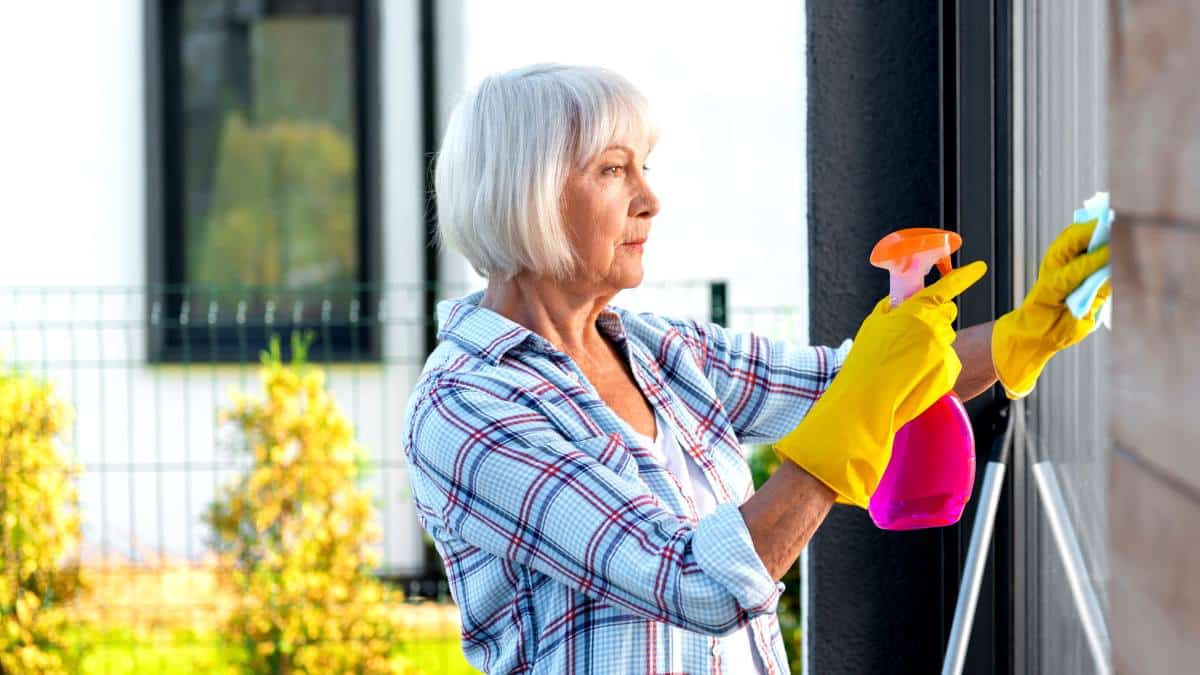Doing housework is associated with improved memory, better attention span, and stronger legs (which in turn means fewer falls) in older adults, according to a recent study published in the journal BMJ Open.
Regular physical activity is good for maintaining optimal physical and mental health.
And among older adults, it curbs the risks of long-term medical conditions, as well as falls.
But around the world, physical activity levels are well below recommended weekly levels.
In fact, this has been the case for decades, especially in high-income countries.
Get out that housework checklist!
Because housekeeping involves physical activity, the researchers wanted to see whether doing various types of household chores could contribute to healthy aging and/or increase the physical and mental capacities of older adults in a wealthy country.
Their study included 489 randomly selected adults, aged between 21 and 90. All were living independently in a large residential complex in Singapore.
The participants were divided into two groups: a younger group of 21-64 year olds (249, with an average age of 44), and an older group of 65-90 year olds (240; average age of 75).
Participants answered questions about the intensity and frequency of household chores they regularly did, as well as how many other types of physical activity they engaged in.
After adjusting for other types of regular physical activity, the results showed that housework was associated with sharper mental abilities and better physical capacity — but only among the older age group.
Different types of housework have different effects
The intensity of the cleaning chores was associated with specific cognitive domains.
Heavy housework, for example, led to increases in attention scores.
Light housework, on the other hand, mostly benefitted memory scores.
More frequent and intense housework was also linked to improved balance and coordination scores.
Prior studies have also suggested a link between aerobic exercise and heightened cognitive function.
Types of “light housework” included doing the dishes, dusting, making the bed, cleaning and hanging the laundry, ironing, and cooking meals.
“Heavy housework” chores included cleaning the windows, changing the sheets, vacuuming, mopping the floor, and DIY activities that involved for example sawing or painting.
Conclusion: get out that housework checklist!
This study suggests that “a combination of light and heavy housework is associated with higher cognitive function, specifically in attention and memory domains, among community-dwelling older adults.”
Moreover, the higher cognitive, physical and sensorimotor functions related to heavy housework activities might plausibly be associated with lower physiological fall risk among community-dwelling older adults.”
How you can help motivate an older person to be more active
If you know some older adults who could use a bit of an activity boost, or if you’re wondering in general how to help with housework for the elderly, check out the multifunctional household apron below. Have you ever seen so many pockets?
Likewise, using housework checklist templates or housework planners can make the job a lot easier, especially for someone who’s just getting back into housework cleaning after a long absence.
Check out the examples below to help get that housework chores list ready to go:
Finally, if you’re currently relying on external housework services, be aware that these days there are many housework apps and even housework robots that can lighten the load!
Check out these other articles about maintaining domestic bliss:
- New study links doing housework to better memory and fewer falls among older adults.
- 34% of people say their partner purposefully does home chores poorly to avoid doing them in the future.
- These elderly fall prevention devices will keep your older relatives safe and sound this holiday season.
Photo: by DepositPhotos

